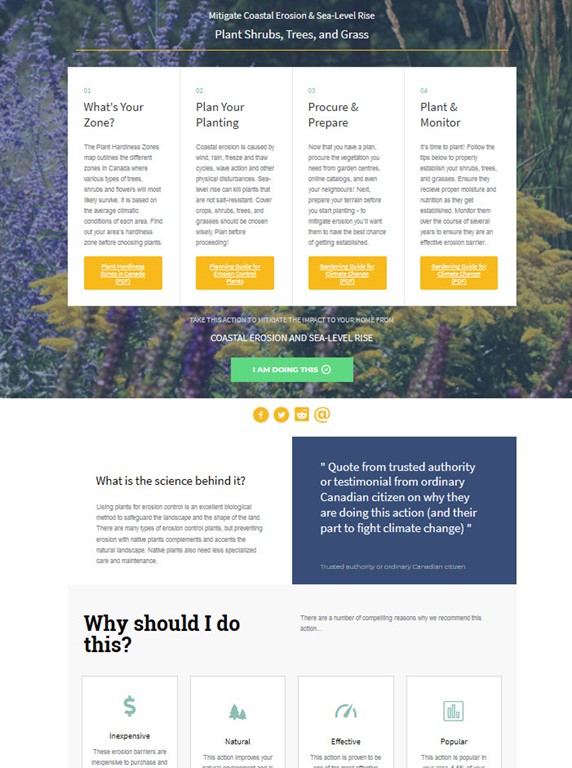Projects
Early Ideation for Climate Change R&D
Project start and end dates:
June 2019 to early 2020
Create early mockups, wireframes, business canvases, and other ideation exercises to identify the potential audiences, functionality, and look and feel of a platform that would help prepare for, respond to, and recover from climate change impacts.

The work consisted of numerous ideation and design meetings, to explore different potential applications and user experiences.
An example screenshot on the left is taken from an early prototype built using WordPress. It shows actionable guidance that an individual could take to help delay coastal erosion on their property.
Although the initial designs were not ultimately followed, the ideation work helped us better understand the scope and requirements of an ongoing climate change research project.
Thank
You!
We are grateful to Chrys Moll, Cory Mckinnon and John O’Reilly for their ideation and design assistance in the early concept work!*
* For privacy reasons, we only list people who gave us permission to do so. Did you contribute to this project? Contact us to be added!
Related Project
Software can help the world respond to climate change impacts and disasters.
In 2019 we set out to investigate if there is a need for a solution that gives citizens personalized help preparing for and recovering from climate change impacts and lets trusted authorities assist them and report on their results.
As part of this effort, a great deal of market and technical research was conducted over the last few years. Over 140 students have been involved so far, in dozens of academic institutions in Canada and internationally.
Our greatest finding is the willingness of citizens to take responsibility and help themselves, their neighbors and community plan for, mitigate and recover from climate change impacts and disasters. We also confirmed that a software solution can be built to help overcome the barriers they face when trying to do so.
Now we’re working on a prototype and sharing our findings and progress. Find out more on our OASIS project website!


